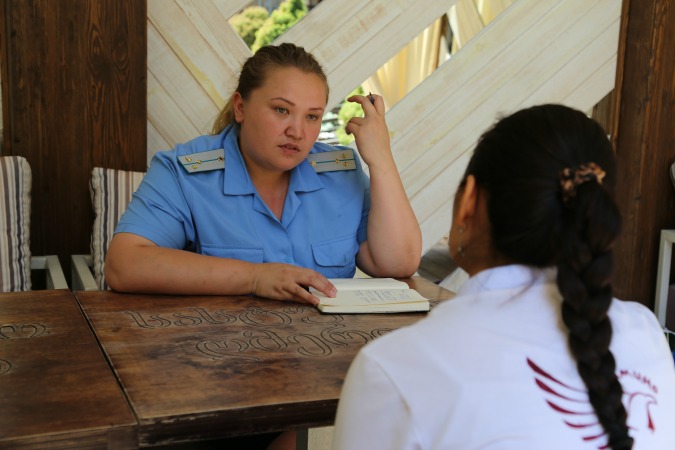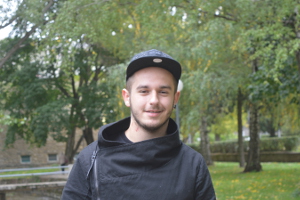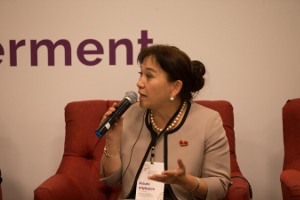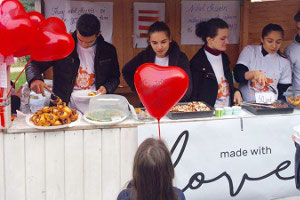Resist
Kazakhstan takes multi-disciplinary action to end domestic violence

1 in 3 women worldwide have experienced physical or sexual violence, mostly by an intimate partner. In Kazakhstan, in 2016 alone, every third murder took place in the family, and as a result of domestic violence, 36 women died and 742 women committed suicide, according to the General Prosecutor’s Office. Some 2481 cases of violence against women and girls were registered last year—just the tip of the iceberg, as many survivors continue to suffer in silence.
In 2016, UN Women assisted the General Prosecutor’s Office in developing a multi-sectoral plan titled, “Kazakhstan Free from Domestic Violence”. The plan includes alignment of national legislation with international standards and best practices in prevention and response to domestic violence. Aigul Serikova, 56 years old, is among the survivors who have benefited from the project. She was regularly beaten by her 34-year-old son, but felt ashamed to tell anyone. It was only when she heard about the General Prosecutor’s Office encouraging women to speak out that Serikova shared her story. The project team is taking a closer look at the issue of violence towards older women.
Within just one month after the initiative kicked off, 14 new cases of sexual abuse and more than 300 cases of domestic violence were reported to the authorities. Read more ►
More stories
From where I stand: "Ending violence against women and girls is hard work, but it's not impossible
At 16 years of age, David Kovačić is a gender equality activist. As an active member of the Be a Man club, a youth initiative that's spreading across the country, he believes that real men are not violent, and encouraging his peers to take a stand against gender-based violence. The clubs are part of an educational program, supported by UN Women, for the prevention of violence and promotion of healthy lifestyles.Read more ►
In the words of Ainuru Altybaeva: "Bride kidnapping is not a tradition, it's a crime”
Passionate and courageous Ainuru Altybaeva serves as a Member of Parliament in Kyrgyzstan and has been an activist for women’s empowerment for over 10 years. She was the initiator of a law on toughening penalties for bride kidnapping. Even though she was frowned upon by many in the society and discouraged by many of her peers in the Parliament, she stood behind her law proposal and lobbied for it with support from women’s activists and her allies in the Parliament. The law was adopted in 2011, signed by president in 2012. One year after the law was adopted, the number of bride kidnappings has reduced by 10 times. Read more ►
Young people in Kosovo[1] take action to combat violence against women
Harnessing the power of innovation and technology, young people in Kosovo have joined efforts to empower survivors of violence and to educate youth about their sexual health and rights. Supported by UN Women and UNICEF Innovation Labs, one group developed an initiative that boosts economic opportunities of violence survivors, and the other, an app that educates teenagers about sexual health and rights. Read more ►
[1] All references to Kosovo on this website shall be understood to be in full compliance with UN Security Council Resolution 1244 (1999).


